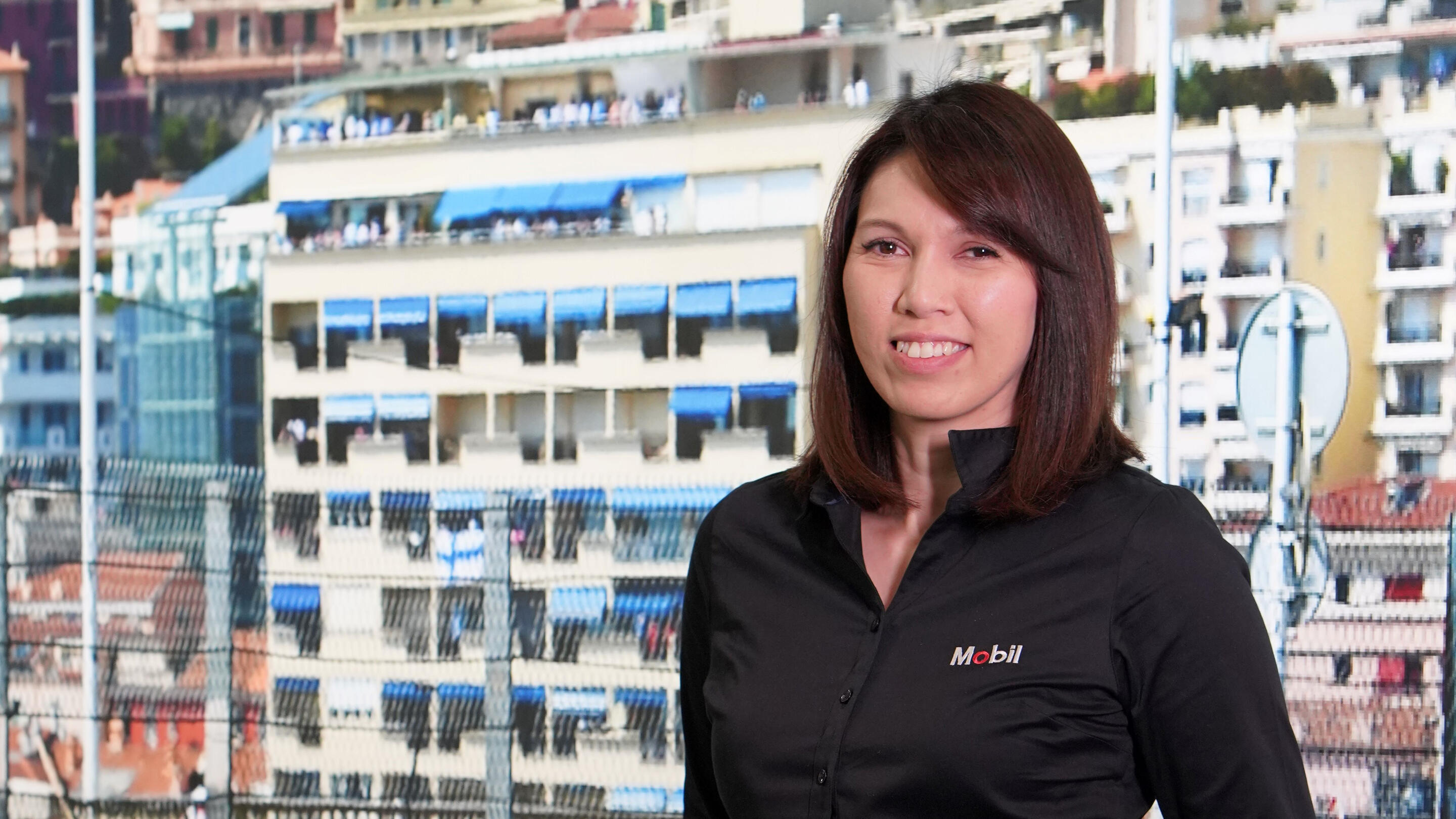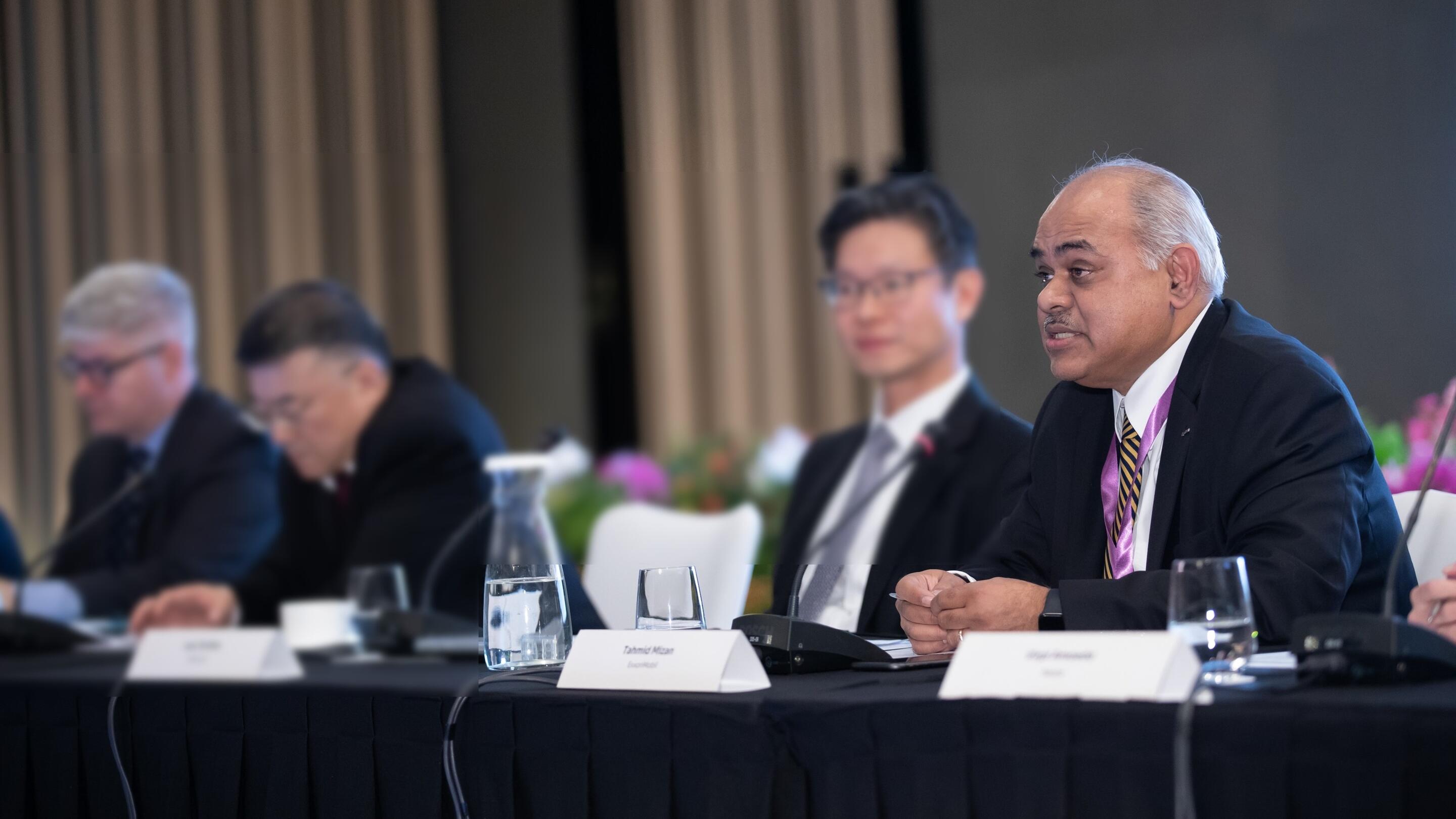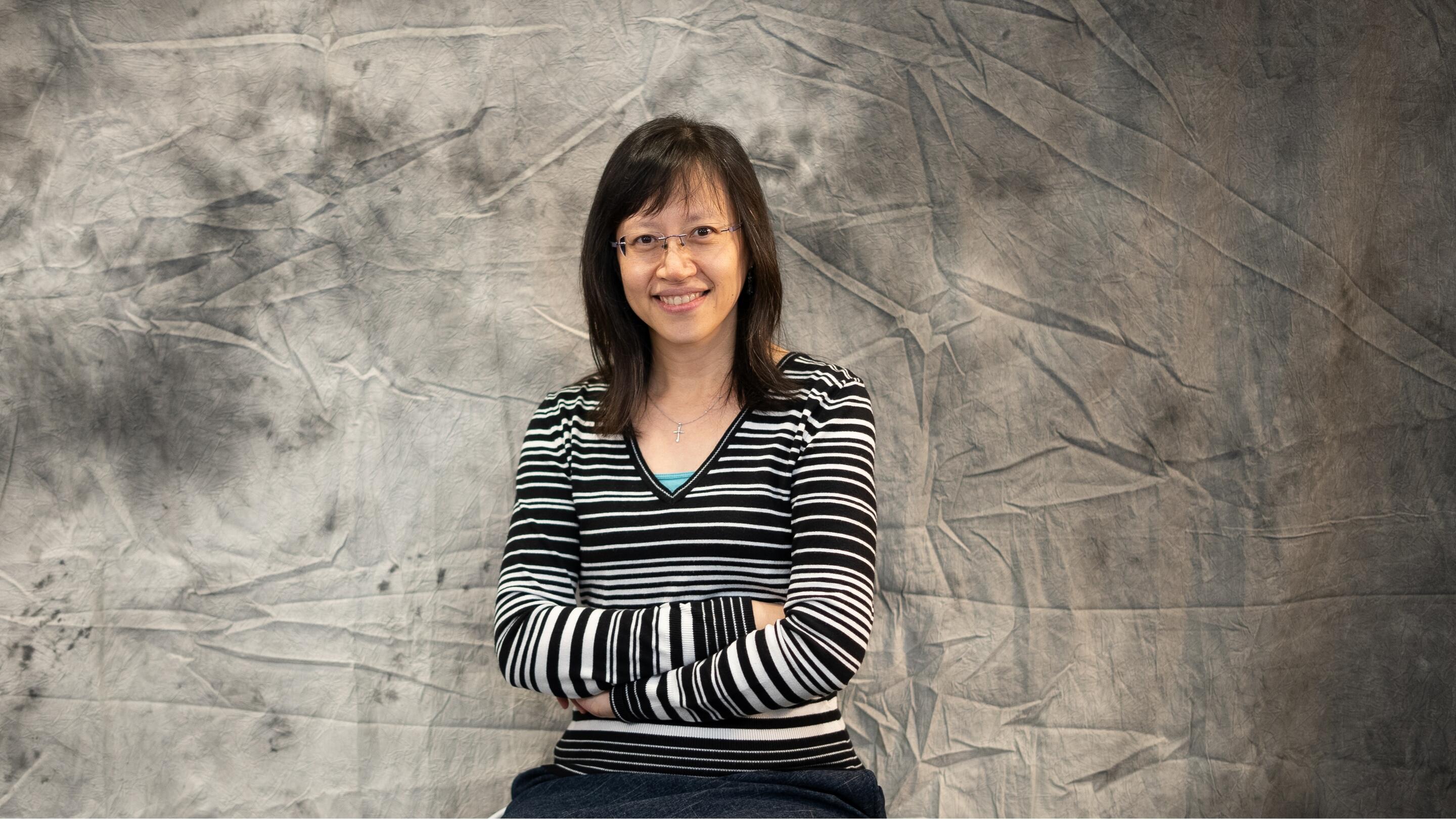selected item
ExxonMobil marks first certified blended sustainable aviation fuel delivery to Singapore Changi Airport
- Refined jet fuel blended with neat Neste MY Sustainable Aviation Fuel at ExxonMobil's Singapore integrated refining and petrochemical complex
- Part of global plan to provide 200,000 barrels per day of lower-emission fuels by 2030
SINGAPORE - ExxonMobil successfully delivered the first cargo of certified Sustainable Aviation Fuel (SAF) to Changi Airport as part of a one-year pilot launched by the Civil Aviation Authority of Singapore (CAAS), Singapore Airlines (SIA) and Temasek1.
ExxonMobil was selected as the fuel supplier for the pilot in February 2022.
Geraldine Chin, chairman and managing director, ExxonMobil Asia Pacific Pte. Ltd., said: “We are proud to supply certified SAF to Singapore Airlines in this inaugural pilot. ExxonMobil is bringing its established capabilities in fuels manufacturing and logistics to help customers such as SIA achieve their net-zero ambitions.”
Under this pilot, ExxonMobil is providing SAF for Singapore Airlines and Scoot flights from Changi Airport beginning July 2022. The SAF is manufactured by blending ExxonMobil-produced refined jet fuel with the Neste-produced neat SAF at ExxonMobil facilities, before being delivered to Changi Airport’s fuel hydrant system. ExxonMobil is leveraging its integrated refining and petrochemical complex in Singapore for the blending process, and its logistics network for the SAF delivery to Changi Airport.
The demand for lower-emission fuels is expected to grow, driven by the need for energy-dense, lower-carbon intensity fuels for hard-to-decarbonize transportation such as aviation, marine and heavy-duty trucking.
ExxonMobil plans to provide more than 40,000 barrels per day of lower-emission fuels, including SAF, by 2025, and has a further goal of supplying 200,000 barrels per day by 2030.
Ms Lee Wen Fen, senior vice president corporate planning, Singapore Airlines, said: “Today marks an important milestone in the SIA Group’s decarbonisation journey, as we uplift a blend of sustainable aviation fuel and jet fuel into our aircraft departing out of Singapore for the first time. Sustainable aviation fuels are a key decarbonisation lever, and this pilot demonstrates our commitment to achieve net zero carbon emissions by 2050. Working together with our partners, we will continue support the adoption of SAF in Singapore.”
Sami Jauhiainen, vice president of renewable aviation for the Asia-Pacific region at Neste said: “We are excited to see Singapore Airlines starting today the use of neat Neste MY Sustainable Aviation Fuel in their flight operations. The collaboration with ExxonMobil, Singapore Airlines, Temasek and CAAS demonstrates the potential of SAF in reducing aviation’s emissions and helps accelerate its use in Singapore and globally. Neste is committed to play its part as we are starting SAF production in Singapore in the first quarter of 2023 with one million tons of production capacity per annum.”
About ExxonMobil in Singapore
ExxonMobil is one of Singapore’s largest foreign manufacturing investors with over S$25 billion in fixed asset investments. Our Singapore affiliate, ExxonMobil Asia Pacific Pte Ltd, (EMAPPL), has manufacturing facilities which include an integrated world-scale refining and petrochemical complex in Jurong and Jurong Island. EMAPPL has a network of service stations under the Esso brand, operates a lubricant plant and is a supplier of cylinder cooking gas. It serves its customers and commercial markets in the region with ground transportation, industrial, aviation and marine fuels, lubricants, petrochemicals and liquefied natural gas (LNG). ExxonMobil also contributes to community programs in Singapore that support the arts and education, health and the environment.
For more information, visit www.exxonmobil.com.sg or follow us on Instagram and Twitter.
1 From July 1, 2022, Temasek’s involvement in the pilot will be managed by GenZero, an investment platform wholly owned by Temasek that is dedicated to accelerating decarbonisation globally.
Explore more

Stay open to unexpected paths in your leadership journey
An overseas posting with ExxonMobil was not initially on the cards for Charlene Pereira. But when the call came, she took a leap of faith and never looked back.ExxonMobil enters agreement with Chandra Asri Group to sell service station network in Singapore
The move to a branded wholesale model aligns with how we market fuels in other parts of the world.ExxonMobil starts first-of-its-kind technology in Singapore
- Unique technology converts lower-value molecules into higher-value lubricant base stocks and fuel
- New EHC 340 MAXTM base stock improves product performance for customers
2 min read
•
Driving positive change faster with policy
We speak to Tahmid Mizan, our representative in the Advisory Council of the new Asia Pacific Sustainable Aviation Centre (APSAC) launched by the Singapore government in July 2025.2 min read
•
Tip for dads: Be present and intentional
We speak to one of our active volunteers who champions a safe space and network for fathers in our Singapore affiliate.2 min read
•
Decide on your priorities and live by them: Mother's Day tip from Pei Theng
We speak to our Asia Pacific Commercial Manager for Aromatics and Glycols, who shares her journey as a working mum of three.3 min read
•